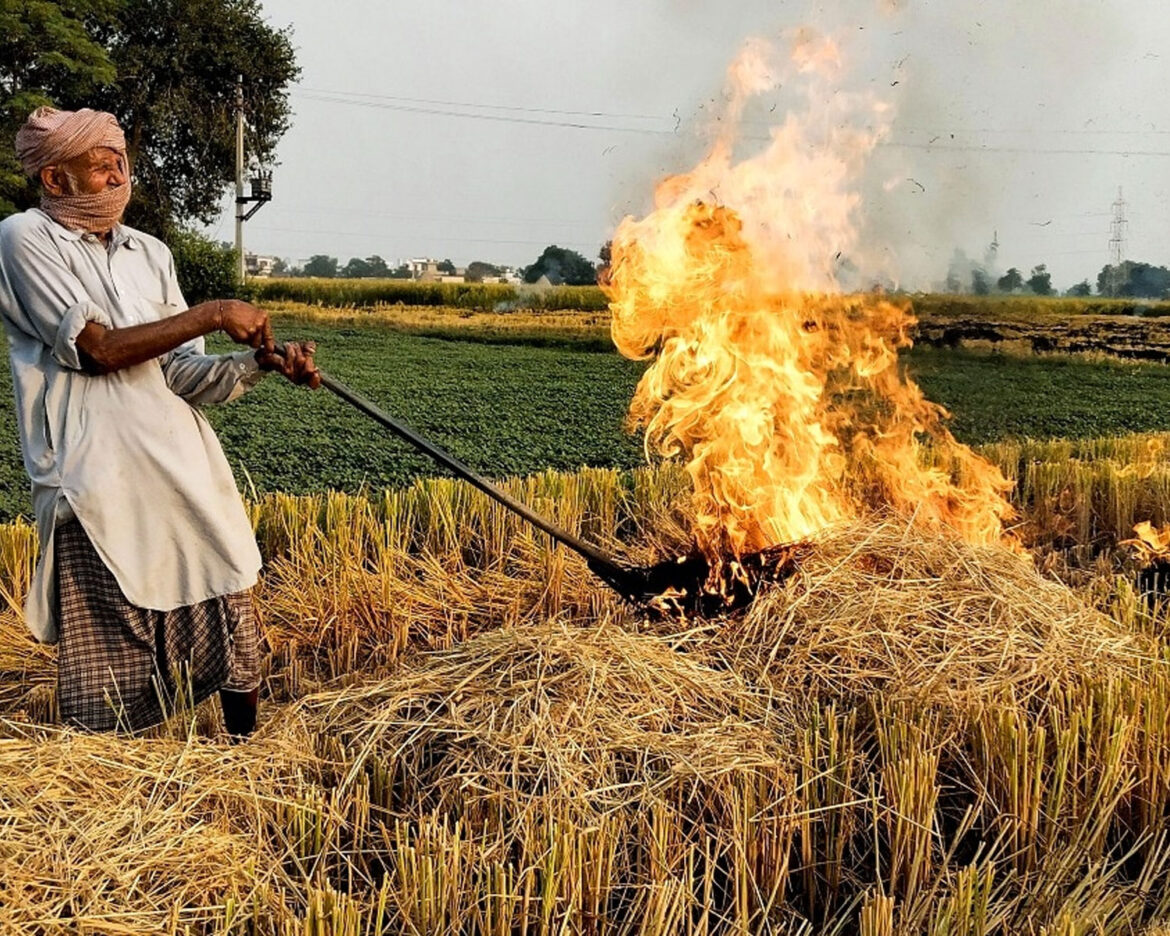At least 16 farmers have been arrested in Haryana’s northern state for illegally burning paddy stubble, contributing to severe air pollution in the region around New Delhi, authorities reported on Tuesday. Stubble burning, a common practice to clear fields, is a major factor in the region’s escalating pollution crisis, especially during the onset of winter.

In a parallel development, Punjab police have registered 182 complaints and arrested 71 individuals for similar violations, including stubble and trash burning, operating banned brick kilns, and driving smoke-emitting vehicles. Punjab’s senior minister, Marriyum Aurangzeb, announced the allocation of resources for artificial rain to mitigate the pollution, with each instance costing between Rs5 million and Rs7 million.
As winter approaches, the New Delhi region faces a severe air quality crisis. On Tuesday, the city recorded an Air Quality Index (AQI) of 320, classified as “very poor” by the Central Pollution Control Board (CPCB). The poor air quality results from cold air trapping dust, vehicle emissions, and smoke, much of which originates from Punjab and Haryana’s stubble burning practices. Delhi was ranked the second-most polluted city globally, following Lahore, according to a live ranking by IQAir.
Haryana’s Kaithal region has registered 22 stubble burning complaints this year, with 16 arrests made, according to Birbhan, a local deputy superintendent of police. Although those arrested were released on bail, investigations are ongoing against nearly 100 farmers, and fines have been imposed on over 300 individuals, as reported by local media.
India’s environment ministry has warned that Delhi’s air quality is likely to remain in the ‘Very Poor’ category (AQI 300-400) in the coming days due to unfavorable weather conditions. In response, authorities have introduced several emergency measures to curb pollution, including water sprinkling on roads, increasing public transport services, and raising parking fees to discourage car use.
However, environmentalists argue that these are only short-term solutions. “This air pollution mitigation needs a long-term comprehensive solution rather than these ad hoc measures,” said environmentalist Vimlendu Jha, criticizing the current efforts as insufficient to address the recurring pollution crisis.



